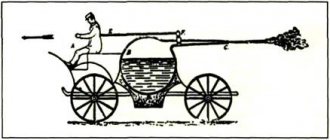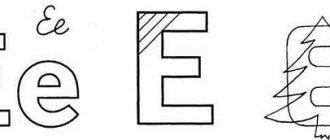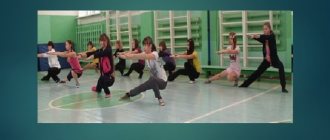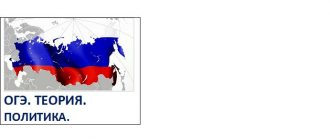Lesson notes on economics for grade 10 on the topic: “What does economics study? Needs and resources."
Economics lesson 10th grade on the topic: “What does economics study? Needs and resources."
Lesson Objectives:
— consideration of issues in the study of economic science;
- consideration of the levels of economic relations - macro - and microeconomics
– study of the concepts of “needs” and resources”, their relationship
- study of the economic concepts “free goods” and “economic goods”, their similarities and differences.
Equipment:
- textbook Kireev A. “Economics. Advanced level. 10-11 grade."
- multimedia presentation.
During the classes:
- Motivational stage.
Look at the screen. Unscramble the word I wrote for you.
Oikos + Nomos
Rice. House fig. law
This word is economics. Look at the illustrations and tell me what this word means in its original version?
This word consists of two words - oikos - house and nomos - law. Literally translated, the word economics means the laws of housekeeping or the science of housekeeping. In a broader sense, economics is the science of economy and management, as well as relationships between people in the process of carrying out economic activities.
But this is a unique word. How is it unique? Do you know who coined the word table? The word hand? The word pen? And we know where the word economics came from and who invented it. It is of Greek origin, who invented it? Greek thinker Xenophon.
- Learning new material.
What does economics study?
In Russian, the word economy has two meanings - economics as the economy of the country and economics as a science - economic theory.
Economy
Economy of the country Science (Economic theory)
Prove to me that economics is a science. Let's remember, is there some problem, a global problem that economics is trying to solve?
Of course, the main problem with economics is that our needs are unlimited, and the resources that need to be spent to satisfy these needs are limited. Economics is trying to resolve the contradiction: how, in conditions of limited resources, to most fully satisfy unlimited needs.
Economics as a science
is
the science of connections in the spheres of production, distribution, exchange and consumption of economic goods with the effective use
of limited resources
to satisfy
unlimited needs
.
Thus, in this course, on the one hand, we look at how the economy works, and on the other hand, we use scientific methods to try to describe various economic processes - the processes of production, distribution, exchange and consumption of goods.
The study of economic relations occurs at different levels - microeconomics, macroeconomics and world economics.
Microeconomics
studies the behavior of individual firms, households and individual markets (such as the land market, capital market, etc.).
Macroeconomics
explores the economic processes taking place in the country. The subject of studying macroeconomics is economic growth, inflation, unemployment.
Micro- and macroeconomics are interconnected. The economic situation of individual firms and households influences the economy and economic development of the state (the level of production in the country depends on the consumer ability of households, production develops, taxes are paid, unemployment falls, etc.). In the same way, the economic situation in the country has an impact on individual enterprises and households (the state pays salaries to doctors and teachers, generally finances healthcare and education, the social sphere, provides tax benefits, etc.).
World economics studies the relationships between national economies, how the world economy is structured, how international trade functions, why some states trade with others and not with others, etc.
functions of economic theory can be distinguished
:
- Methodological function
(economics teaches what to do and what not to do, and explains why this is so)
- Scientific-cognitive function
(comprehensively studies the problems of production, distribution, exchange and consumption of material goods and services)
- Critical function
(gives an objective critical positive or normative assessment of economic phenomena and processes)
- Practical (recommendatory) function –
Based on a positive assessment of economic phenomena, makes recommendations to the leaders of the state, company, etc.
Economic activity consists of 4 blocks, which, together, are called the reproduction process.
Students are divided into groups, which are given sheets and markers, and are asked to create a reproduction process cluster on their own.
Reproduction process–
it is the process of production, distribution, exchange and consumption of economic goods.
We divide production into 2 groups: tangible and intangible production
. Moreover, material production, i.e. agriculture, industry, energy, and intangible production - services, education, healthcare, art - all this relates to the economy. Both belong to the economic sphere, both are studied in economics, and both satisfy human needs.
Let's remember what needs are?
- Needs and resources.
Needs
- a person’s perceived need for something.
Needs express the need to own something to carry out life activities and personal development.
Although human needs are diverse, according to Maslow’s hierarchy there are only 5 basic ones.
They are divided into primary and secondary. The lower level of needs is biological needs and the need for safety; without satisfying these needs, the needs of the next level simply do not arise. Without satisfying biological needs, a person simply cannot live. The need for security is also a primary need. For example, people moved into a new apartment - there is nothing there yet, but an iron door will be installed first. Or another example. Every home has a first aid kit. If there is a small child or elderly people in the house, this first aid kit will be very massive - this is a security need to have access to vital medications at any time when they may be needed and pharmacies are closed.
And second-order needs are the so-called. social needs - love, friendship, communication, respect, self-esteem and, finally, self-realization.
The needs are influenced by various factors - standard of living, climate, degree of production development. Information significantly influences their development - you learn about some new products in a particular area, and you have a new need.
Remember what the specific needs are?
Needs grow limitlessly
.
To satisfy them, resources are needed.
Resources-
means available to humanity to satisfy its needs.
Resources are divided into 2 groups (which ones?)
- renewable - resources that exist in unlimited quantities or that are capable of reproduction (water, air, solar and wind energy, plants and animals)
- non-renewable - resources that exist in limited quantities, at least for several generations, or that are not capable of reproduction.
Today, 60% of the world's consumption consists of raw materials, which will last for about 200 years - oil, gas, coal, ferrous and non-ferrous metals.
Thus, if needs are unlimited, then our resources are limited.
Limited –
lack of resources to simultaneously and fully satisfy all the needs of all people at any time.
And economics, as we have already said, is precisely the study of mechanisms for satisfying unlimited human needs in conditions of limited resources. This is the main problem of economics, its main task as a science.
- Free and economic benefits.
To satisfy needs, a person can use only the resources available to him. And here we move on to the concept of goods.
Good
is a means to satisfy a specific human need.
You and I know that benefits are divided into 2 types - which ones? Free and economic. So free good coincides in meaning with the word resource. What is a free good?
Free benefits
- these are goods, the available volume of which is greater than the need for them.
What kind of blessings are these - sunlight, water, air.
- Free goods are unlimited and therefore free.
- They are not created by man, these benefits are given by nature.
- Consumption by one person does not reduce the usefulness for other people.
We obtain economic benefits through the processing of resources. Try to characterize economic goods using the characteristics of free goods.
Economic benefits
- goods, the available volume of which is less than the need for them.
- economic goods are produced by people
- economic benefits are limited and must be paid for.
Economic benefits are divided into public and private
.
Public goods
are
a set of goods and services that are provided to the population free of charge, at the expense of state funds (health care, education, law enforcement, roads, bridges, etc.).
Private goods are provided to a specific consumer taking into account his individual demand. Such a good is divisible
, it
belongs to the individual
as private property and can be
inherited and exchanged
. A private good is given to the one who paid for it.
Public goods are indivisible
and belong to society.
In addition, public goods have such a characteristic as non-excludability.
. This means that it is impossible to exclude the consumption of these goods by individual members of society.
People consume economic goods in the form of goods and services. Remember what their key difference is?
Product -
it is a product of labor produced for exchange (sale).
Service
is an activity that has a certain value. (health care, education, insurance, construction, repairs, security, etc.).
Let's look at the characteristics in more detail.
Product characteristics
: (try it yourself)
- has a material embodiment
- the process of production of a product can be separated from the process of consumption (a product can be produced, stored in a warehouse, and consumed after a few years)
- easily sold or transferred to another person.
Service characteristics:
—
has no material embodiment
— the production process cannot be separated from the consumption process (you receive the service at the time of its production)
Products that complement each other are called complements
(complementary goods), goods that replace each other -
substitutes
(substitute goods).
Complementary goods complement each other in consumption.
Give examples of complementary goods - skis and poles or ski boots, a computer and mouse, player and headphones, camera and flash, and examples of substitute goods - tea and coffee, white and black bread, meat and fish.
To increase the amount of economic goods, it is necessary to organize their production. Thus, we can conclude that
Economy
is a science that studies human behavior in the process of production, exchange and distribution of economic goods.
D.z.
P.1 in the textbook.
In writing in a notebook: “Let’s invent a situation.”
As homework, you can ask students to come up with examples that would confirm the need for every person (including the common man) to study the basics of economics. You can even ask schoolchildren to write a short essay on this topic. At the next lesson, you should discuss and comment on the most interesting answer options.
Economics - lessons, tests, presentations, notes
Create your teacher website PC and PPC courses Video lessons Olympiad Webinars for teachers
- home
- Economy
Watch and download free lessons, tests, notes, presentations and other useful materials on economics for teachers and students.
- All 306
- Lessons 74
- Presentations 150
- Tests 11
- Planning 14
- Events 8
- Other 49
- All classes
- 1 class
- 2nd grade
- 3rd grade
- 4th grade
- 5th grade
- 6th grade
- 7th grade
- 8th grade
- 9th grade
- Grade 10
- Grade 11
| Halykaralyk zamanaui sauda zhane currency katynastar Halykaralyk zamanaui sauda zane currencies katynastar…. 05/14/2020 Kuandyk Zhansaya Kamalkyzy 96 0 |
Presentation on the discipline "Economics" on the topic "Financial Relations" Presentation on the discipline: Economics on the topic: "Financial Relations". Consists of 7 slides. Can be used for classes and classroom hours.... 05/08/2020 Valitov Nail Ramilevich 91 0 |
| Presentation on the topic: Financial system Presentation on the topic: Financial system. Suitable for lessons, class hours. Consists of 7 slides... 05/06/2020 Arkadyeva Diana Valerievna 73 0 |
| Presentation of economics on the topic of motivation The presentation consists of the text motivation. The presentation consists of 9 slides. Can be used for classes and class hours…. 05.25.2020 Eliseev Egor 73 0 |
| Presentation on the topic: Financial policy Presentation on the topic: Financial policy. The presentation consists of 8 slides, suitable for lessons and classroom hours.... 05/06/2020 Gallyamova Karina Galimyanovna 99 0 |
| Objectives on international auditing standards This material has been prepared for teachers and students teaching international auditing standards... 04/18/2020 Yuldasheva Saodat Khalmurzaevna 94 0 |
| Notes on the topic “Financial system” Notes on the topic “Financial system”... 05/06/2020 Gilfanov Marcel Farisovich 90 0 |
| The topic “Value Added Tax” is everything you need to know about VAT. ... 08/18/2020 Galichina Ekaterina Vladimirovna 38 1 |
| Economic inequality of regions of the Russian Federation The work reveals the problems of economic inequality in the Russian Federation.... 04/27/2020 Ayupova Diana Maratovna 73 0 |
| Presentation on the discipline “Economics” on the topic “Financial system”. Students of 19PD-1 GBPOU UKSIVT Rozalina Gabitova. Teacher: Kiseleva M.V. Presentation on the discipline “Economics” on the topic “Financial system”. Students of group 19PD-1 GBPOU UKSIVT Rozalina Gabitova. Teacher: Kiseleva M.V. The presentation contains… 05/08/2020 Gabitova Rozalina Robertovna 94 0 |
| Assignments on the topic “Bank Deposit” Assignments for individual and group work on the topic Bank Deposit. Useful for preparing for the Unified State Exam in social studies... 06/02/2020 Pakova Ekaterina Nikolaevna 84 0 |
| Economy. Financial system. Presentation on finance with 8 slides, short and clear…. 05/08/2020 Khristoforova Zamira Akmuradovna 63 0 |
| Presentation on the discipline “Economics” on the topic “Financial system” Financial relations. 7 slides. Can be used for classes and class hours…. 05.15.2020 Shagivaleeva Karina Fanilevna 84 0 |
| Motivation in management In this presentation, we will consider the concept of motivation, its types, stages. ... 05/23/2020 Avakumova Anna Alekseevna 84 0 |
| Presentation on the discipline “Fundamentals of Management and Marketing” on the topic: “Organization in Management” Presentation on the discipline “Fundamentals of Management and Marketing” on the topic: “Organization in Management” Consists of 9 slides Can be used for… 05/23/2020 Alexandrova Milana Vladimirovna 66 0 |
| Presentation on the discipline “Economics” on the topic “Financial Relations” by a student of group 19PSA-2, GBPOU UKSIVT Elvina Zotova, supervisor M.V. Kiseleva Presentation on the discipline “Economics” on the topic “Financial Relations” Students of group 19PSA-2, GBPOU UKSIVT by Elvina Zotova, head Kiseleva M.V. 05/15/2020 Zotova Elvina Sergeevna 79 0 |
| Assignments on the topic “Credit” Assignments on the topic “Credit” can be used for group and individual work, as well as for preparing for the Unified State Exam... 06/02/2020 Pakova Ekaterina Nikolaevna 75 0 |
| Presentation on the discipline “Management” on the topic “Motivation” Presentation on the discipline “Management” on the topic “Motivation” 7 slides... 05.23.2020 Salyamov Artur 70 0 |
| Financial systems This development corresponds to the topic Financial systems. Consists of 9 slides. Can be used for classes and classroom hours. ... 05/08/2020 Belosludtseva Anastasia Vladislavovna 85 0 |
| Araslanova Yuliana it was cool and difficult and simply amazing... 05/06/2020 Araslanova Yuliana Damirovna 74 0 |
- ← Back
- Continue →




